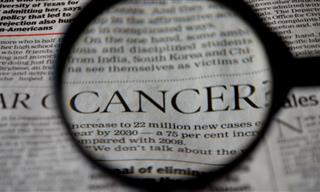Some new research has added to the increasing pile of evidence that taking hormonal contraceptives increases your chances of developing breast cancer.
While the findings from this latest study fall in line with what we already know, the study focused mostly on formulations and delivery methods that have been developed over the last twenty years - meaning that even newer contraceptives on the market are adding to the problem.
The study was carried out by researchers at the University of Copenhagen, who studied data collected from nearly 1.8 million Danish women between the ages of 15 and 50. This data was taken from the National Register of Medicinal Product Statistics, tracking on average just under 11 years of the women's lives since 1995, and including over 11,500 cases of breast cancer.
This is a lot of data, so the results shouldn't be taken lightly, but it's important that we put them in perspective. For those who were taking some type of hormonal contraceptive, the risk of developing breast cancer was comparatively increased. The risk depends on the amount of time they had been taking the contraceptive. If it was less than a year, the increase was around 9%. For more than a decade, it increased significantly to 38%.
What does all this mean though? An increased risk of 38% looks terrifying, but it's important to note that the overall risk of breast cancer among women - while high if compared to other cancers - is still relatively rare in younger women.
In an editorial for the study, David Hunter from the Nuffield Department of Population Health put the results into perspective. He says, "first, the approximately 20% higher risk of breast cancer among women who currently use hormonal contraceptives and those who do not must be placed in the context of the low incidence rates of breast cancer among younger women."
Among those under the age of 35, taking a hormonal contraceptive for less than a year added just one new breast cancer case for every 500,000 women. Other risks to consider as well include age and family history. The study did its best to include pregnancy and inherited risks, but didn't include factors such as physical activity.
The influence of a history of taking such contraception also seems to become less significant among post-menopausal women aged between 50 and 70, where the risk of developing breast cancer increases.
Hunter adds that in contrast to an increased risk of breast cancer, oral contraceptives do lower the chances of developing other diseases later in life. He goes on to say that "beyond the fact that they provide an effective means of contraception and may benefit women with dysmenorrhea or menorrhagia, the use of oral contraceptives is associated with substantial reductions in the risks of ovarian, endometrial, and colorectal cancers later in life."
Better yet, the benefits stick around for decades after you stop taking contraception, unlike the risks which tail off much quicker.
Studies such as this one should inspire continued efforts to develop risk-free and side-effect free contraception, or for companies to make an increased effort to get more male contraception on the market.
For the rest of us, the results should be factored into our decision making, but not cause too much alarm. If you're concerned, talk to your doctor.
Source: sciencealert
Images: depositphotos
 Go to BabaMail
Go to BabaMail























































